Related Research Articles
Alcanzar una estrella II is a Mexican telenovela produced by Luis de Llano Macedo for Televisa in 1991. It is the sequel to Alcanzar una estrella.

Angélica Espinoza Stransky, known as Angélica Aragón, is a Mexican film, television and stage actress and singer. She is daughter of the Mexican composer José Ángel Espinoza "Ferrusquilla". She is recognized for her performances in various Mexican film productions such as Cilantro y perejil (1997), Sexo, pudor y lágrimas (1999) and El crimen del Padre Amaro (2002) and in diverse American productions like A Walk in the Clouds (1995) and Dirty Dancing: Havana Nights (2002) among others. She is also famous for having starred in two famous Mexican telenovelas: Vivir un poco (1985) and Mirada de mujer (1997).

La Madrastra is a Chilean television soap opera created by Arturo Moya Grau, that aired on Canal 13 from April 21 to September 18, 1981, starring Jael Unger and Walter Kliche. The series, set in Los Angeles and Santiago between 1961 and 1981, depicts the memoirs of Marcia Espínola, a woman wrongfully accused of murder in America. Twenty years later, she is freed from prison, returning to Chile for revenge, and to see her children as their stepmother. La Madrastra having achieved both wide acclaim and commercial success with 80% television ratings, became a significant part of the 1980s Chilean popular culture.

Elizabeth Ann Sheridan Scarbrough, better known as Beatriz Sheridan was a Mexican actress and director. A pioneer of the Mexican telenovelas and prominent figure of the Mexican theater of the 20th century, she was also a teacher of dramatic technique for television and directed many great dramatic stars.

Chispita is a Mexican telenovela produced by Valentín Pimstein for Televisa in 1982. It's an original story by Abel Santa Cruz, the telenovela is a remake of the 1979 Argentinean telenovela Andrea Celeste.
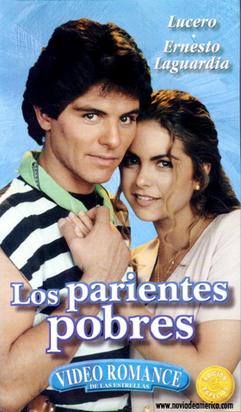
Los Parientes Pobres is a Mexican telenovela produced by Carla Estrada for Televisa in 1993. Lucero sang the main theme and it was an airplay hit in all Latin America. It was never released as a single, but it appears in the special album Lazos de Amor and her Lucero album known as Veleta.
Déjame vivir is a Mexican telenovela produced by Valentín Pimstein for Televisa in 1982. This is a remake of the 1970 Venezuelan telenovela Cristina. The reception for this telenovela was not good, in fact it was selected as the worst one of 1982.
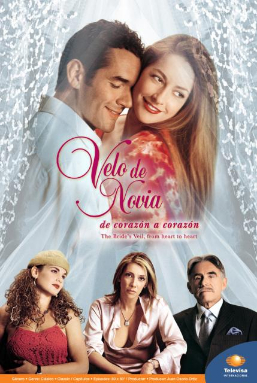
Velo de novia is a Mexican telenovela produced by Juan Osorio for Televisa in 2003. It aired on Canal de las Estrellas from June 30, 2003 to January 2, 2004. The telenovela stars Susana González, Eduardo Santamarina, Héctor Suárez, Cynthia Klitbo, Marlene Favela and Blanca Guerra.

Niña de mi corazón is a Mexican telenovela produced by Pedro Damián for Televisa that aired on Canal de las Estrellas from March 8, 2010 to July 9, 2010. It is a remake of the Mexican telenovela Mi pequeña traviesa, also produced by Pedro Damián.

Sueños y Caramelos is a Mexican telenovela produced by Carlos Moreno Laguillo for Televisa in 2005. It is a remake of La Pícara Soñadora.
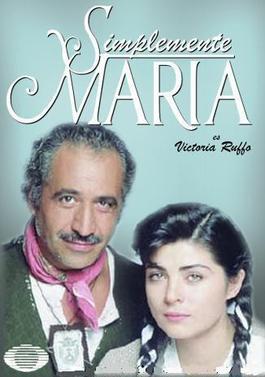
Simplemente María is a Mexican telenovela produced by Valentín Pimstein for Televisa in 1989.
Alma Delfina is a Mexican actress.
Principessa is a Mexican telenovela produced by Valentín Pimstein for Televisa in 1984. The telenovela about the adventures and misadventures of a group of friends Paola, Fernanda, Marisela and Adriana working as stylists in the salon "Princess".

Qué bonito amor is a Mexican telenovela produced by Salvador Mejía Alexandre for Televisa that aired on Canal de las Estrellas from 22 October 2012, to 2 June 2013. It is based on La Hija del Mariachi, produced by Colombian's RCN Television and written by Mónica Agudelo in 2006–2007. Production of Qué bonito amor officially started on 9 August 2012. In the United States the telenovela aired on Univision from 15 April 2013 to 4 October 2013.
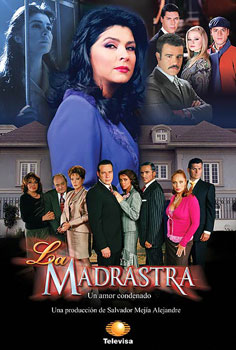
La Madrastra is a Mexican telenovela. It was produced by Televisa and broadcast on Canal de las Estrellas in Mexico from Monday, February 7, 2005, through Friday, July 29, 2005. The program became an unexpected success, garnering ratings in excess of 30 points. Starring Victoria Ruffo and César Évora, who last appeared together in 2000's Abrázame muy fuerte, along with Eduardo Capetillo, Jacqueline Andere, Ana Martín, Cecilia Gabriela, Martha Julia, Guillermo García Cantú, René Casados and Sabine Moussier, La madrastra tells the story of María, a woman who lost twenty years of her life after being falsely accused of murder and who returns to Mexico to exact revenge on her husband and friends who abandoned her and to see her beloved children once more.
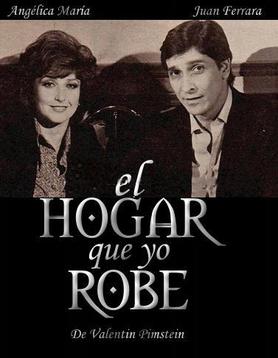
El hogar que yo robé is a Mexican telenovela produced by Valentín Pimstein for Canal de las Estrellas in 1981.
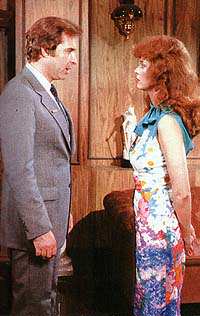
Vanessa is a Mexican telenovela produced by Valentín Pimstein for Televisa in 1982. Is a remake of the successful Brazilian telenovela Idolo de Pano.
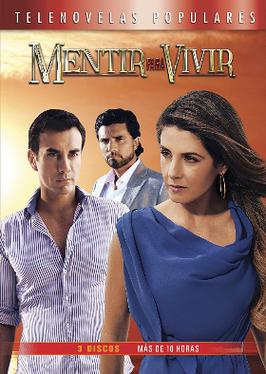
Mentir para vivir is a Mexican telenovela produced by Rosy Ocampo for Televisa. It aired on Canal de las Estrellas from June 3, 2013 to October 20, 2013.
Morir para vivir is a Mexican telenovela produced by Ana Martín for Televisa in 1989.
La sombra del otro is a Mexican telenovela produced by Julissa and Giselle González Salgado for Televisa. It premiered on Canal de las Estrellas on May 27, 1996 and ended on Friday, August 16, 1996.
References
- ↑ "Vivir un poco" (in Spanish). alma-latina.net. Retrieved December 4, 2015.